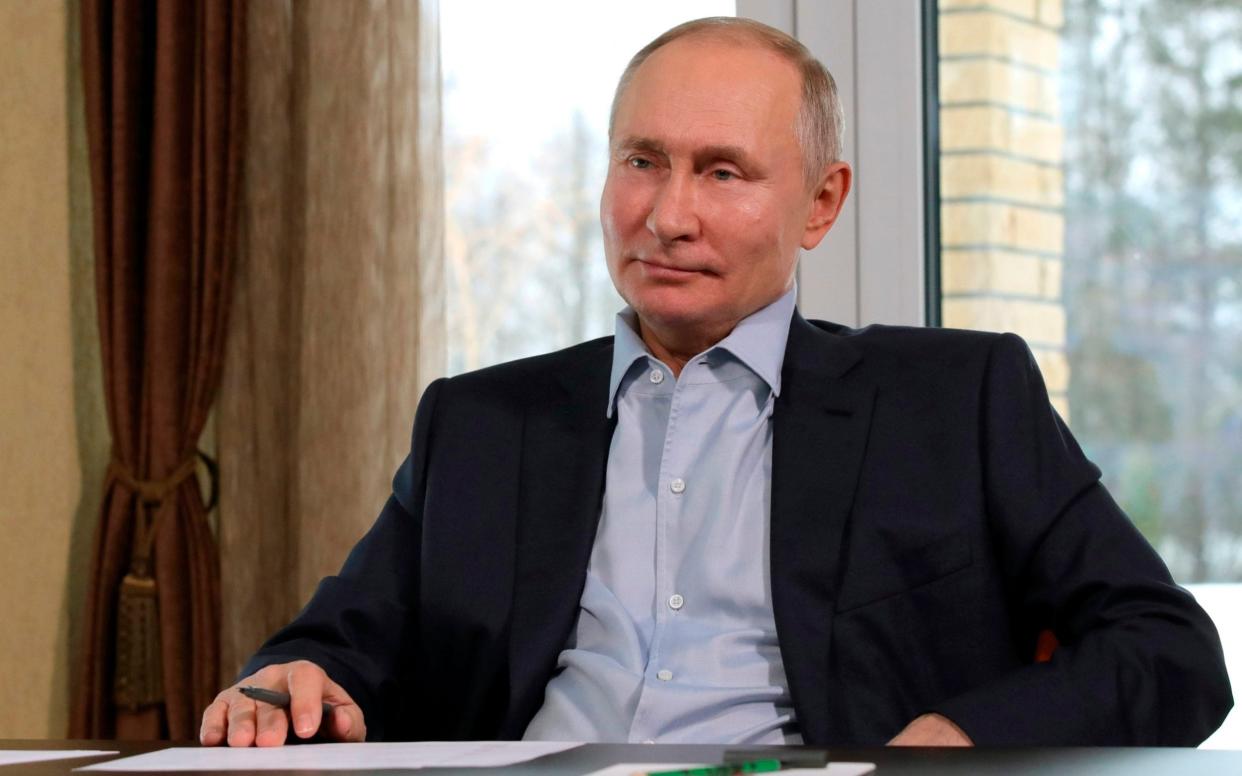Putin calls pro-Navalny protesters 'terrorists', rejects claims about Black Sea 'palace'

Russian President Vladimir Putin compared the organisers of mass anti-Kremlin protests at the weekend to “terrorists” as he dismissed an investigation by the jailed opposition leader Alexei Navalny into his personal wealth.
The president, who never says Mr Navalny’s name in public, took the surprising step of directly addressing allegations he owns a billion-dollar residence on the Black Sea, dubbed by the opposition leader as “Putin’s Palace”.
The comments came after demonstrations on Saturday that saw tens of thousands of people take to the streets over Mr Navalny’s arrest on his return to Russia after months recovering from a poisoning, and wider anger over corruption.
EU foreign policy chief Josep Borrell is due to visit Moscow early next month to press the Kremlin on the opposition leader’s arrest, he said after a meeting of European foreign ministers to decide on a response to the last week’s events.
"The council considered it completely unacceptable and condemned mass detentions and police brutality over the weekend. We call on Russia for the release of Mr Navalny," said Mr Borrell.
Mr Borrell has insisted on sticking to his planned trip, which would be the first to Moscow by an EU foreign policy chief since 2017, despite opposition from several countries.
During a call with university students on Monday, Mr Putin, referring to a claim by authorities that the opposition had lured minors into taking part in the rallies, said that young people should not be used for political ends.
“That’s what terrorists do. They put women and children in front of themselves,” he said during a video call with Russian university students. Surveys of the protesters found the vast majority of those taking part were adults.

Mr Putin’s comments on the protest, as well as his denial of the “palace” investigation, marks a shift in the Kremlin’s approach to Mr Navalny, which has long sought to downplay his significance.
“Nothing that is listed there as my property belongs to me or my close relatives, and never did,” Mr Putin said when asked by one of the students about the investigation.
Mr Navalny’s video report on the property in southern Russia - which he says is the country’s largest private home, boasting a casino, private theatre and smoking room with a stripper pole - has been viewed more than 85 million times online.
The video was released shortly after Mr Navalny’s arrest. Currently in pre-trial detention, he faces more than a decade behind bars on charges widely seen as politically motivated, after being poisoned with a Novichok nerve agent in an attack he has blamed on the Russian state.
Allies of the opposition leader announced fresh protests on Sunday calling for his release.
EU foreign ministers meanwhile met in Brussels to discuss the bloc’s response to the arrest of Mr Navalny and police brutality during last weekend’s protests, which saw more than 3,000 people detained.
European diplomats had earlier said Brussels was expected to hold off on sanctions until Mr Navalny goes to court next month to see if the Kremlin puts him behind bars for an extended term.

 Yahoo News
Yahoo News 
